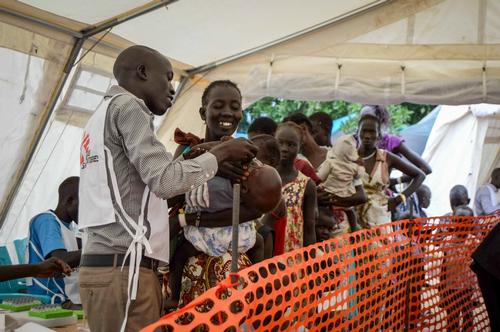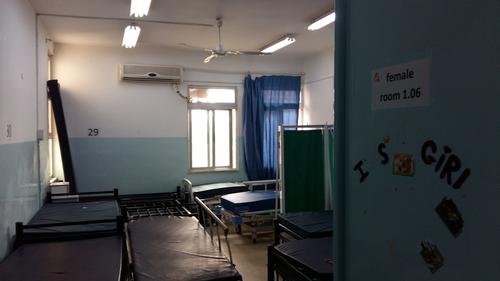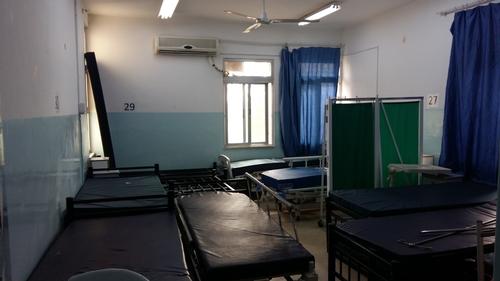2,500 flowers are placed in front of Pfizer’s HQ, representing number of children who die of pneumonia each day.
New York – Despite there being a vaccine that can prevent it, pneumonia remains the leading global cause of childhood death in many developing countries, killing almost one million kids per year.
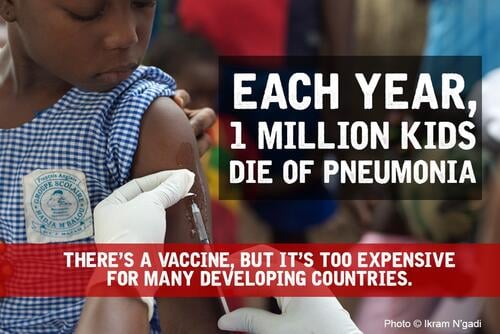
On the eve of Pfizer’s annual shareholder meeting, Médecins Sans Frontières (MSF) delivered to Pfizer headquarters the names of nearly 400,000 people who signed a petition demanding that pharmaceutical companies Pfizer and GlaxoSmithKline (GSK) reduce the price of the pneumonia vaccine to US$5 per child in all developing countries and for humanitarian organisations.
“Millions of babies and young kids around the world are left unprotected against pneumonia because Pfizer and GSK charge such high prices for the pneumonia vaccine that many governments and humanitarian organisations can’t afford to vaccinate children,” said Dr. Greg Elder, Medical Coordinator at MSF’s Access Campaign. “After combined sales of more than $30 billion for the pneumonia vaccine alone, we think it’s pretty safe to say that Pfizer and GSK can afford to lower the price so all developing countries can protect their children from this childhood killer.”
MSF delivered the petition during a stunt outside Pfizer’s global headquarters in New York, where dozens of people placed flowers at the company’s door. One flower was laid for every child lost to pneumonia each day, resulting in 2,500 flowers – representing the number of kids who would die from pneumonia that day – piled in front of Pfizer’s front door. Reams of paper with the names of nearly 400,000 people from 170 countries who signed MSF’s ‘A FAIR SHOT’ petition lay in an empty baby crib. The petition urges the two companies making the pneumonia vaccine to drop the price to $5 per child (for all three doses). With Pfizer having earned more than $6 billion in sales for this vaccine just last year alone, signatories of the petition sent a strong signal to Pfizer’s CEO, board and shareholders that the company should not put billions of dollars in profits over children’s lives.
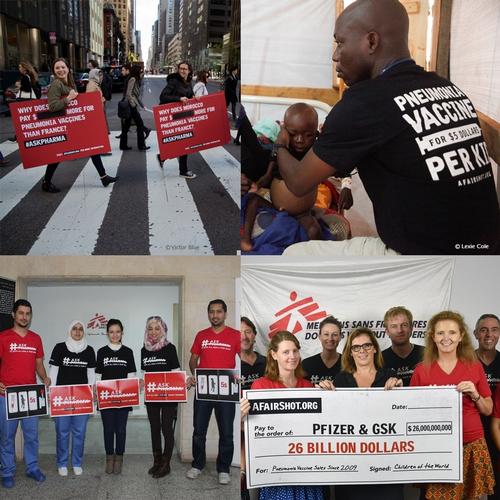
Last year, 193 governments at the World Health Assembly unanimously passed a landmark resolution demanding more affordable vaccines and increased transparency around vaccine prices. The governments of more than 50 countries underlined the rising inequities among them caused by the increased financial burden of new vaccines, with many stating that the high price of new vaccines, such as the pneumonia vaccine, either prohibited them from introducing it or threatened their ability to maintain it in their routine immunisation programmes. Countries such as Algeria, Bosnia, Egypt, Indonesia, Jordan, Thailand, and Tunisia, among others, have expressed that they are not able to introduce the pneumonia vaccine because of its high price.
MSF has vaccinated children caught in emergencies with the pneumonia vaccine in the Central African Republic, Ethiopia, South Sudan, Uganda and other countries. After more than five years of struggling to get Pfizer and GSK to sell the vaccine to MSF at an affordable price, MSF last year launched its ‘A FAIR SHOT’ campaign to push the companies to reduce the price of the pneumonia vaccine to $5 per child (for all three doses).
In 2015, MSF released its vaccine pricing report, The Right Shot: Bringing Down Barriers to Affordable and Adapted Vaccines, which showed that in the poorest countries it is now 68 times more expensive to vaccinate a child than in 2001, with many parts of the world unable to afford new high-priced vaccines like that against pneumonia.
“We’ve seen too many children die of pneumonia, and we’re not going to stop until we know that all countries can afford this life-saving vaccine,” said Elder. “It’s tremendous to see that nearly 400,000 people globally have joined us to tell Pfizer and GSK they must drop the price so more kids’ lives can be saved. What’s the point of a life-saving vaccine if the most vulnerable people can’t afford it?”
Each year, MSF teams vaccinate millions of people, both as outbreak response to diseases such as measles, meningitis, yellow fever and cholera, as well as routine immunisation activities in projects where it provides health care to mothers and children. In 2014 alone, MSF delivered more than 3.9 million doses of vaccines and immunological products. MSF has purchased the pneumonia vaccine in the past for use in its emergency operations. MSF is scaling up its use of the pneumonia and other vaccines with a particular focus on improving its work in routine immunisation, as well as extending the package of vaccines used in humanitarian emergencies. For more info, visit afairshot.org



